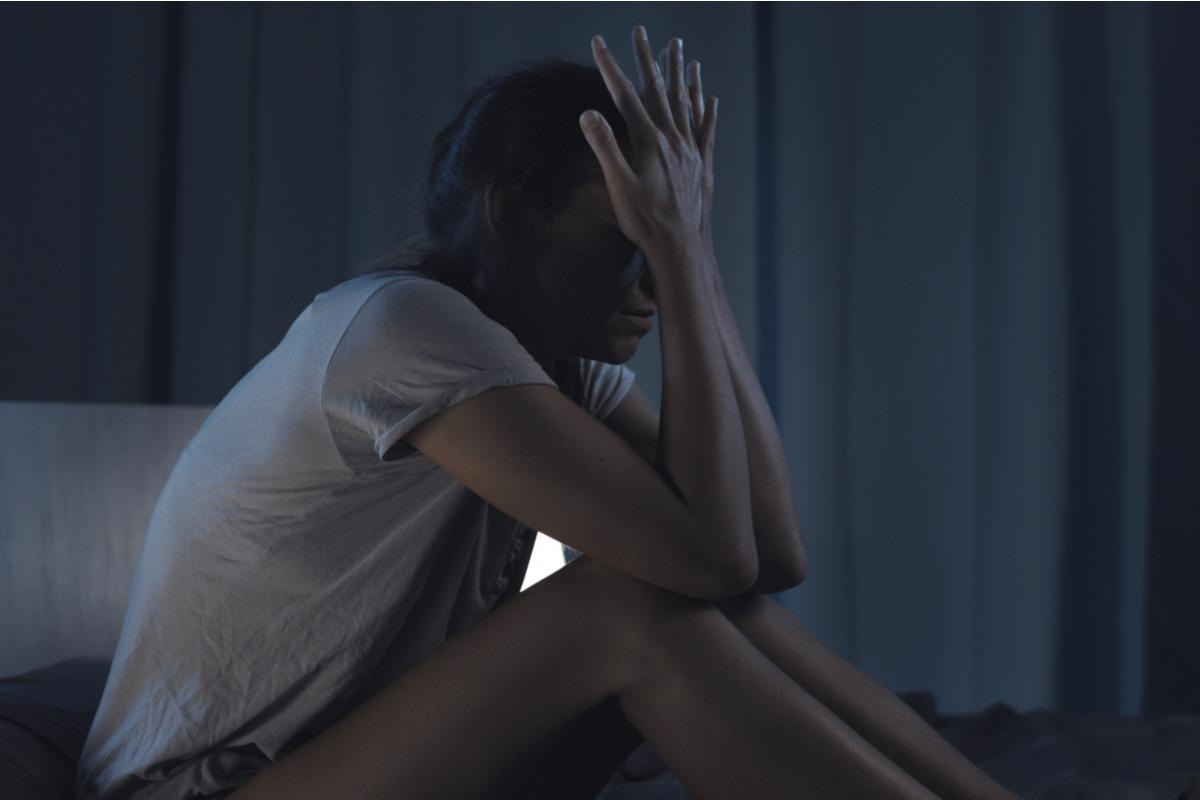In a recent article posted to the medRxiv* preprint server, researchers uncovered the relationship between mental health and sleep in Sweden during the severe acute respiratory syndrome coronavirus 2 (SARS-CoV-2) pandemic.

Background
The outbreak of SARS-CoV-2 in late 2019 is one of the most life-changing catastrophes in modern history. As a result of the non-pharmaceutical measures placed by the nations to curb the coronavirus disease 2019 (COVID-19) pandemic, many people experienced drastic changes in work, communication, and even leisure pursuits.
Although Sweden, unlike most nations, was not subjected to a tight lockdown during the pandemic, additional measures such as border closures, travel restrictions, and working from home were implemented that helped stop the spread of SARS-CoV-2.
However, these preventive measures caused some negative effects, including increased loneliness, worry about loss of income, and job insecurity. Data from previous studies indicate that the COVID-19 pandemic has led to anxiety, stress, depression, and changes in sleep patterns of populations in many regions around the globe.
About the study
In the present work, the researchers assessed the bidirectional relationship between mental health and sleep quality. The scientists also determined how the SARS-CoV-2 pandemic impacted mental health and sleep in the Swedish population from June 2020 to September 2021, a period when the second and third COVID-19 waves occurred. The information required for the current study was extracted from the Omtanke2020 research, which was performed to determine the influence of SARS-CoV-2 infection on mental health in Sweden.
The 9,035 subjects who completed at least 25% of their baseline and eight monthly follow-up questionnaires in the Omtanke2020 analysis were enrolled for the present study. The team used maps to depict the distribution of mental health and sleep in the distinct Swedish areas and longitudinal graphs that adjusted for age, gender, recruitment method (invitation or self-recruitment), and SARS-CoV-2 status across the research period.
Relative importance networks (RIN) were used to graphically characterize the underlying links between sleep, mental health, and SARS-CoV-2 infection. Finally, the researchers used generalized estimating equations (GEE) with various tweaks to explain how sleep influences mental health and vice versa.
Results
The results showed that a robust bidirectional association existed between 1) depression and sleep disruption and 2) SARS-CoV-2-linked distress and anxiety at baseline and the eight-month follow-up. The link of mental health variables was consistent with time, whereas their association with the SARS-CoV-2 incidence varied with time, congruent with prior investigations.
During the initial research stage, only 5.57% of subjects had SARS-CoV-2 infection. However, the range of COVID-19-linked distress was higher at the study initiation relative to the eight-month monitoring period when more than 42% of subjects had the viral infection. A reduction in depression, stress, anxiety, SARS-CoV-2-linked distress, and to a smaller extent, loneliness was observed comparing the baseline and the eight-month survey data. A weak but significant negative association existed between SARS-CoV-2-linked distress and SARS-CoV-2.
On the contrary, COVID-19 and sleep quantity or quality had no link. The authors hypothesized that those who feared SARS-CoV-2 the most and those who were uninfected had greater levels of poor sleep and mental health burden.
The majority of the mental health variable was higher in northern Swedish regions than in southern areas at the baseline. There was a widespread decline in all mental health metrics throughout the country in the eight-monthly follow-up surveys. The northern-southern variations narrowed but did not vanish. Nevertheless, the island of Gotland had a superior proportion in all the mental health metrics at both the baseline and the eight-month follow-up.
Conclusions
The study findings indicated that mental health and sleep outcomes demonstrated north-south regional and seasonal variances at the start of the research yet, diminished with time. The incidence rate of SARS-CoV-2 in the sample was marginally linked with seasonal variations in mental health and sleep. The findings suggest the connection between SARS-CoV-2 incidence and mental health changes with time. A bidirectional association was found between mental health at baseline and sleep quantity and quality at follow-up and vice versa.
All the analyses employed in the current study add to a deeper comprehension of the longitudinal variations and bidirectional relationship between mental health and sleep during the COVID-19 pandemic, with an emphasis on the second and third SARS-CoV-2 waves when prevention efforts were more stringent. This study depicts that during the SARS-CoV-2 pandemic, mental health at baseline was correlated with negative symptom patterns of sleep quantity and quality at follow-up, and vice versa. In addition, the results showed that there was a shaky link between SARS-CoV-2 incidence, mental health, and sleep.
*Important notice
medRxiv publishes preliminary scientific reports that are not peer-reviewed and, therefore, should not be regarded as conclusive, guide clinical practice/health-related behavior, or treated as established information.
- González-Hijón, J. et al. (2022) "Unravelling the link between sleep and mental health during the COVID-19 pandemic". medRxiv. doi: 10.1101/2022.03.28.22273027. https://www.medrxiv.org/content/10.1101/2022.03.28.22273027v1
Posted in: Medical Science News | Medical Research News | Disease/Infection News
Tags: Anxiety, Coronavirus, Coronavirus Disease COVID-19, covid-19, Depression, Mental Health, Pandemic, Research, Respiratory, SARS, SARS-CoV-2, Severe Acute Respiratory, Severe Acute Respiratory Syndrome, Sleep, Stress, Syndrome

Written by
Shanet Susan Alex
Shanet Susan Alex, a medical writer, based in Kerala, India, is a Doctor of Pharmacy graduate from Kerala University of Health Sciences. Her academic background is in clinical pharmacy and research, and she is passionate about medical writing. Shanet has published papers in the International Journal of Medical Science and Current Research (IJMSCR), the International Journal of Pharmacy (IJP), and the International Journal of Medical Science and Applied Research (IJMSAR). Apart from work, she enjoys listening to music and watching movies.
Source: Read Full Article
